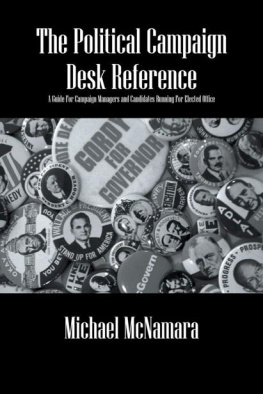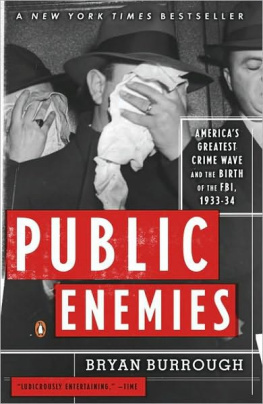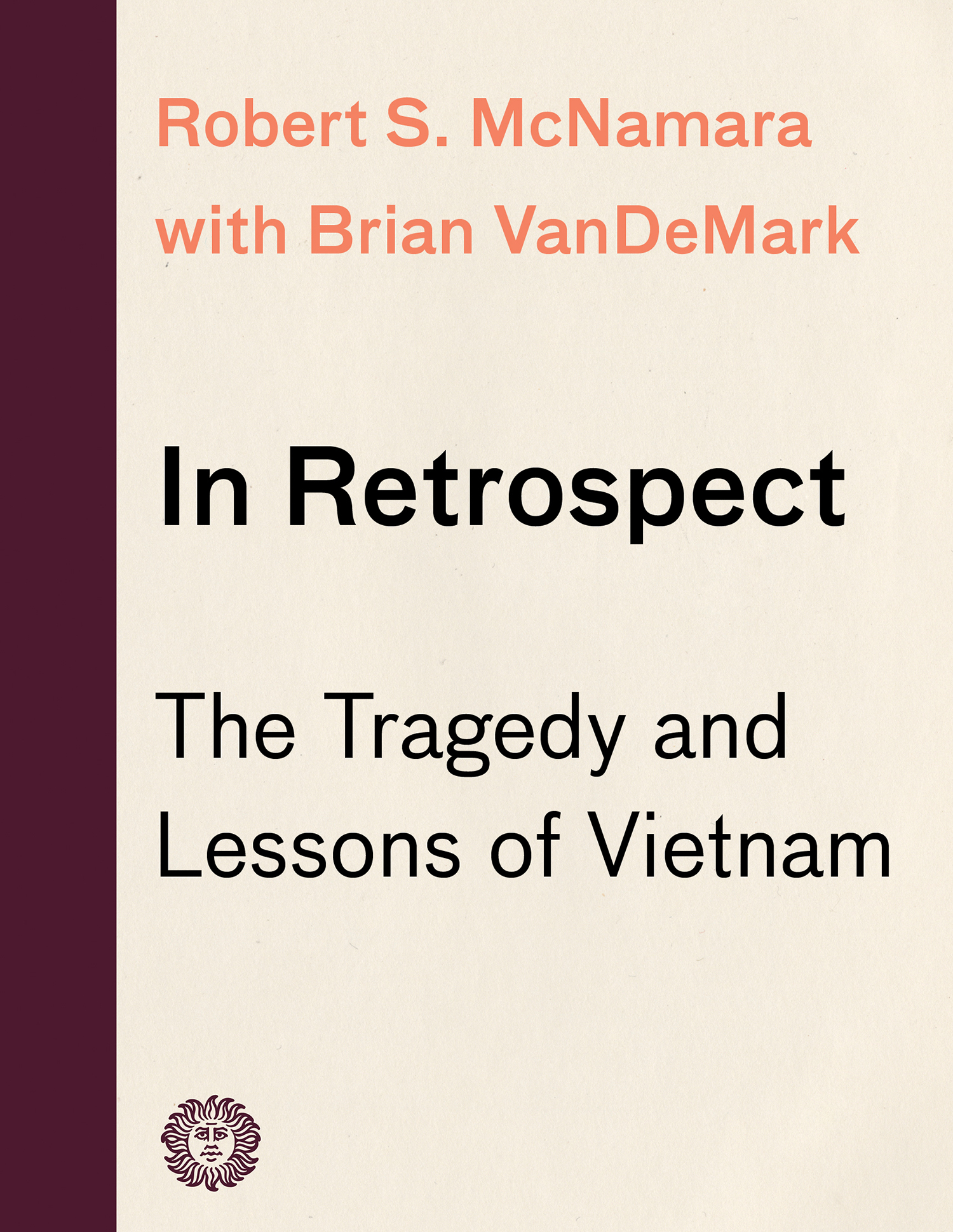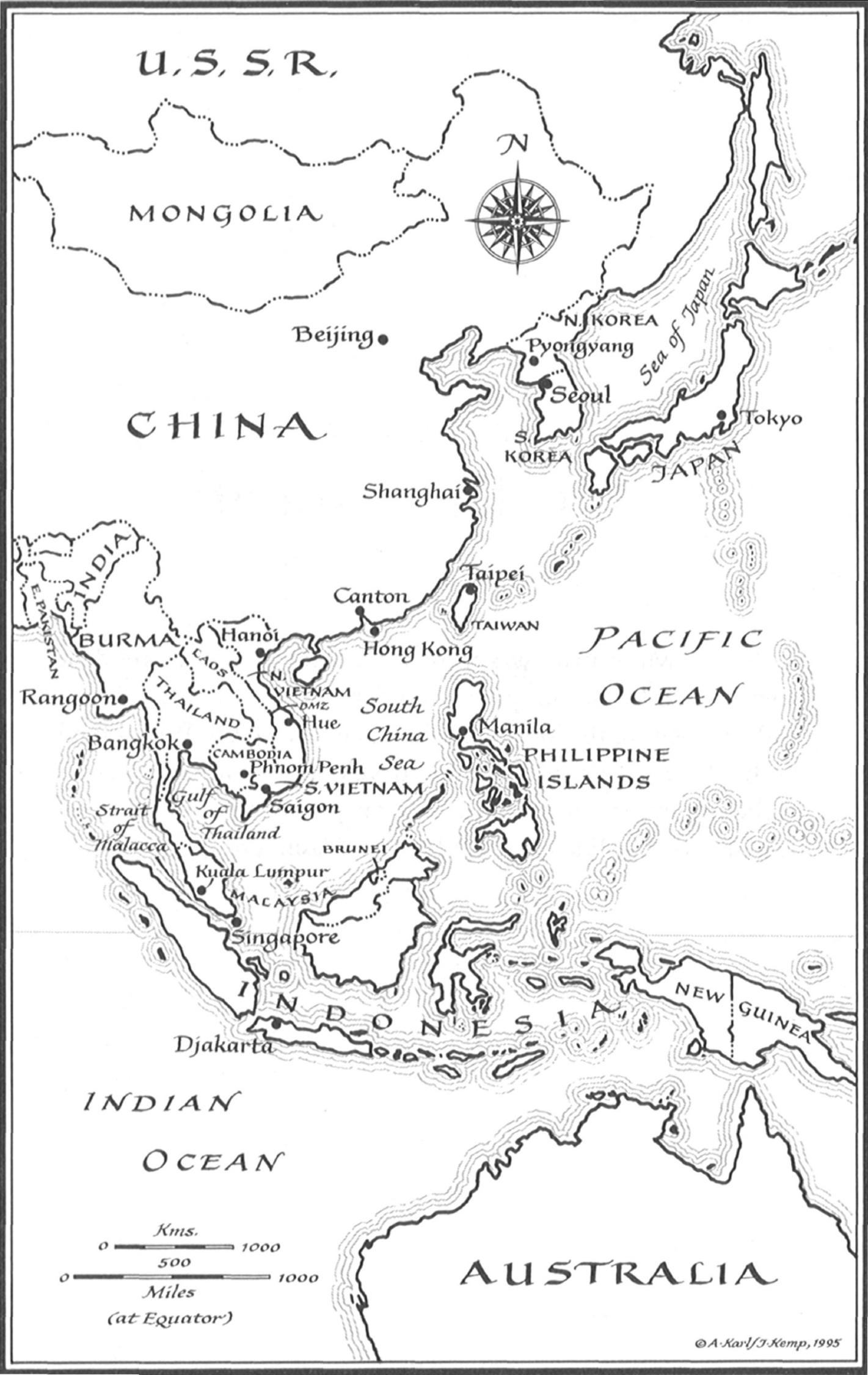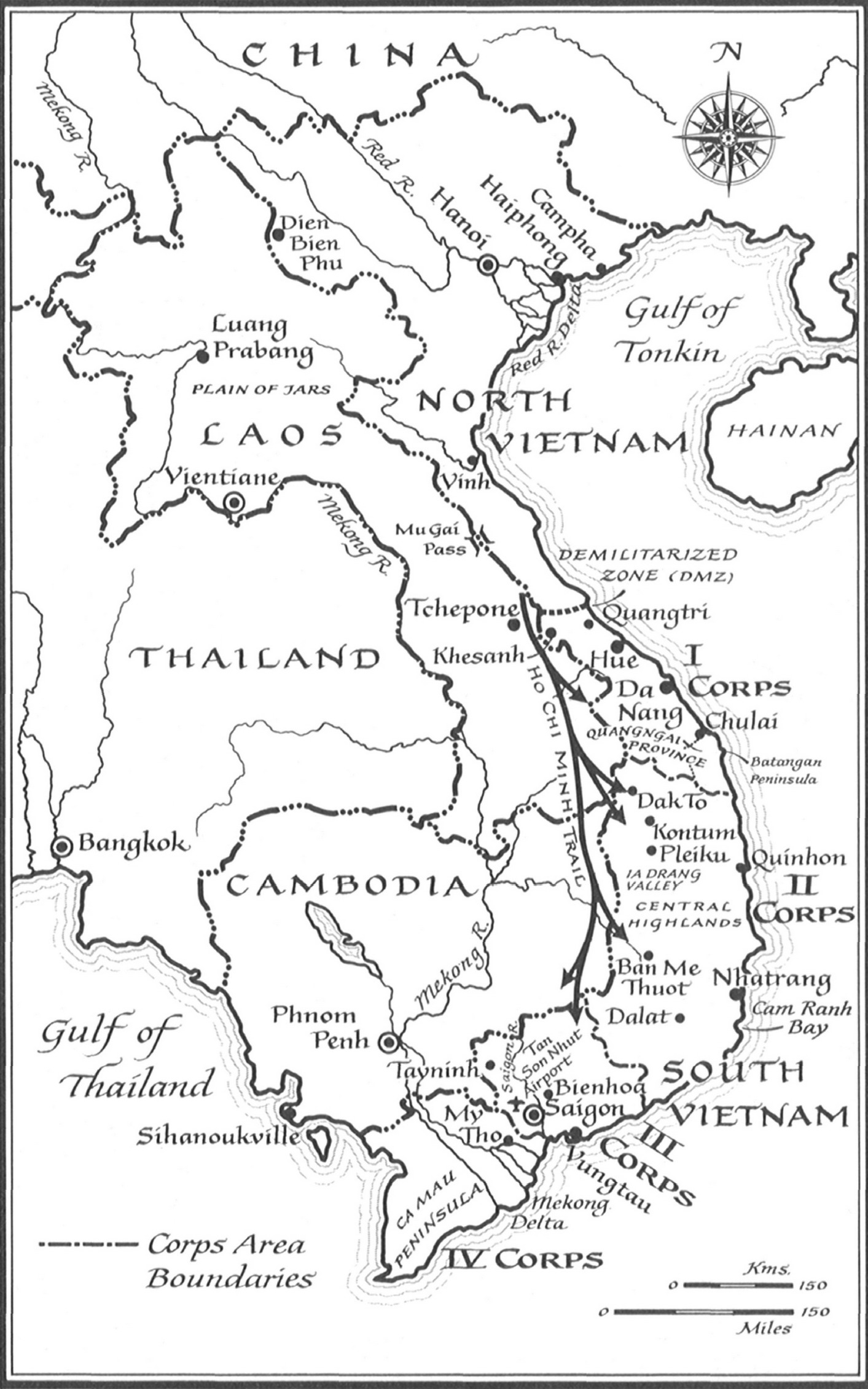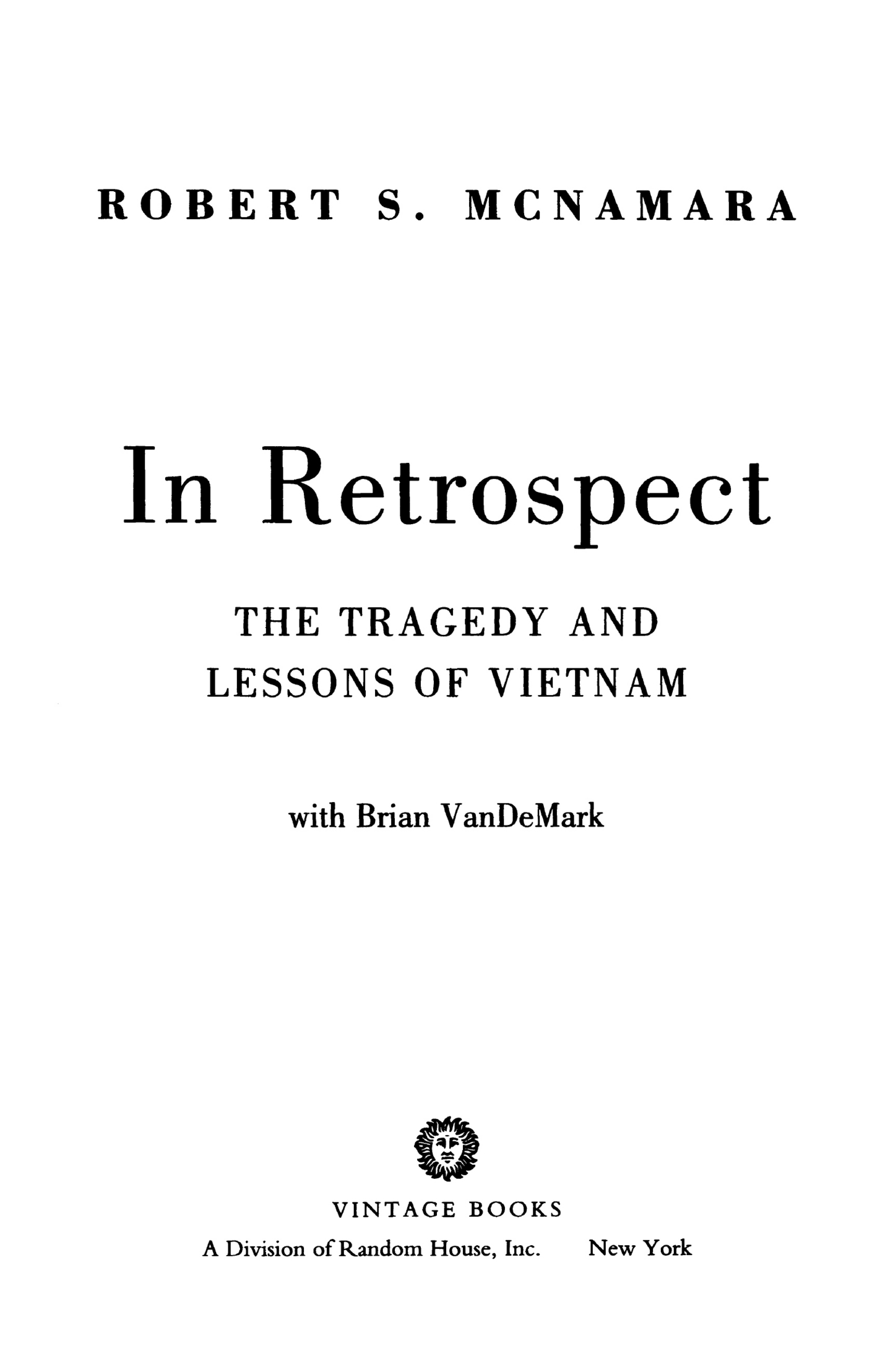ROBERT S. McNAMARA
In Retrospect
Robert S. McNamara was secretary of defense under Presidents Kennedy and Johnson, president of the Ford Motor Company, and president of the World Bank. Since leaving the World Bank he has been active in economic development efforts across the globe and in the arms control and non-proliferation movements. A native of San Francisco, he lives in Washington, D.C.
FIRST VINTAGE BOOKS EDITION, MARCH 1996
Copyright 1995, 1996 by Robert S. McNamara
Map copyright 1995 by Anita Karl and Jim Kemp
All rights reserved under International and Pan-American Copyright Conventions. Published in the United States by Vintage Books, a division of Random House, Inc., New York, and simultaneously in Canada by Random House of Canada Limited, Toronto. Originally published in slightly different form in hardcover by Times Books, a division of Random House, Inc., New York, in 1995.
Grateful acknowledgment is made to the following for permission to reprint previously published material: Foreign Affairs: Excerpt from Nuclear Weapons After the Cold War by Carl Kaysen, Robert S. McNamara and George W. Rathjens. Foreign Affairs, Fall 1991. Copyright 1991 by the Council on Foreign Relations, Inc. Reprinted by permission of Foreign Affairs (Fall 1991). Universal Press Syndicate: Excerpt taken from a Mary McGrory column by Mary McGrory. Copyright 1965. Dist. by Universal Press Syndicate. Reprinted with permission of Universal Press Syndicate.
constitutes an extension of this copyright page.
The Library of Congress has cataloged the Times Books edition as follows:
McNamara, Robert S.
In retrospect : the tragedy and lessons of Vietnam / Robert S. McNamara with Brian VanDeMark.1st ed.
p. cm.
Includes bibliographical references.
ISBN 0-8129-2523-8
1. Vietnamese Conflict, 19611975United States.
I. VanDeMark, Brian, 1960. II. Title.
DS558.M44 1995
959.7043373dc20 94-40088
Vintage ISBN: 0-679-76749-5
Ebook ISBN9780525562603
Random House Web address: http://www.randomhouse.com/
v4.1
a
In Memory of Marg, one of Gods loveliest creatures. She enriched the lives of all who knew her, and she brought me strength and joy as we journeyed through forty years of life together.
Contents
June 9, 1916January 20, 1961
A brief sketch of my life from birth, June 9, 1916, to the day I became President John F. Kennedys secretary of defense, January 20, 1961. I explain how I came to that post and the beliefs and values I brought to it.
January 19, 1961August 23, 1963
The Kennedy administrations decisions relating to Vietnam from the time of a critical meeting with President Eisenhower the day before JFKs inauguration, through the political crisis that erupted in Saigon in the summer of 1963. The chapter outlines the assumptions behind the administrations decision to increase sharply U.S. involvement in Vietnam. It stresses the two contradictory premises that underlay that commitment: the fall of South Vietnam to Communist control would threaten the security of the West, but the U.S. military role would be limited to providing training and logistical support.
August 24November 22, 1963
A pivotal period of U.S. involvement in Vietnam, punctuated by three important events: the overthrow and assassination of South Vietnams president Ngo Dinh Diem; President Kennedys decision on October 2 to begin the withdrawal of U.S. forces; and his assassination fifty days later.
November 23, 1963July 29, 1964
The chapter opens with a statement of what I believe President Kennedy would have done in Vietnam had he lived. It then describes the subtle, incremental, but crucial slide toward deeper involvement in Vietnam during the first eight months of the Johnson Administration. After Diems death, we confronted an unraveling political situation in Saigon, along with growing demands for more U.S. military action.
July 30August 7, 1964
The closest the United States came to a declaration of war, the Tonkin Gulf Congressional Resolution of August 1964 generated intense controversy and enduring questions: What happened? Why? What were the consequences? What should have been done differently? This chapter addresses those questions by describing what transpired in the Tonkin Gulf; why the Johnson administration acted as it did; why Congress quickly and overwhelmingly approved the resolution: and how LBJ and his successor, President Nixon, subsequently misused it.
August 8, 1964January 27, 1965
As the Johnson administrations policy on Vietnam drifted during the 1964 presidential election, military and political conditions in South Vietnam rapidly worsened, heightening the dilemma between avoiding direct U.S. military involvement in the conflict and avoiding the loss of South Vietnam to communist control. Deep divisions developed within the American government, and the Pentagon itself, over what to do in the face of an increasingly difficult and dangerous problem. Events reached a critical juncture when we faced a choice among unpalatable alternatives at the beginning of 1965.




